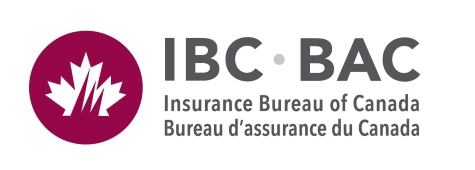EDMONTON, AB, Feb. 19, 2021 /CNW/ - Two January winter storms in Western Canada caused over $134 million in insured damage, based on surveys from Catastrophe Indices and Quantification Inc. (CatIQ).
The January 12–14 winter storm brought intense winds across British Columbia (BC), Alberta and Saskatchewan. The storm downed trees leading to damage and power outages in BC. In Alberta, most damage was around Taber, Lethbridge and Calgary. Saskatchewan bore the brunt of the damage, seeing the most prolonged period of extreme wind gusts. Property owners across southern Saskatchewan reported extensive damage to farm structures, including barns and grain bins. Property damage to houses and other structures due to wandering grain bins was also reported. Wind gusts across the Prairies exceeded 100 km/h and caused extensive damage. Damage was close to $30 million in Alberta and close to $70 million in Saskatchewan.
The January 19–20 snowsqualls in Alberta recorded a wind gust of 193 km/h west of Calgary. For comparison, sustained 193 km/h winds would be the equivalent of an EF-2 tornado. While the winds that swept over the central part of Alberta weren't quite that strong, the region still saw prolonged intense wind gusts reaching a peak of 107 km/h. The snowsqualls caused extensive damage, including downed trees and power lines and collapsed roofs, and shingles, vents and siding were torn off numerous homes and some businesses. The total damage of the snowsqualls is estimated at close to $32 million.
Standard home and business insurance policies cover wind damage, and auto policies will cover wind damage if the owner purchased comprehensive coverage.
"Once again severe storms have caused havoc in Western Canada," said Aaron Sutherland, Acting Vice-President, Western and Pacific, Insurance Bureau of Canada (IBC). "These events are examples of the increasing impact of extreme weather and the need to increase investment in measures to adapt and better protect Canadians from coast to coast."
Alberta in particular has experienced more severe weather events this decade than any other region in Canada. Taxpayers and insurers share the cost for severe weather damage. For every dollar paid in insurance claims for damaged homes and businesses, all levels of government and taxpayers pay out much more to repair public infrastructure that severe weather has damaged. Yet Canada still lacks a national climate adaptation strategy with measurable targets and the accompanying investments needed to protect Canadian homes and businesses from natural disasters.
Canadians continue to experience accelerating financial losses from a changing climate. While acknowledging the importance of a resilient recovery, the federal government lacks any national plan to protect Canadians from floods, fires, windstorms and hail. For all of its laudable work on reducing future climate threats, the federal government is paying too little attention to the losses Canadians are facing today due to past inaction.
In 2020, the federal government took the foundational step of creating the Task Force on High-Risk Residential Flood Insurance and Strategic Relocation. Through this task force, insurers will work with governments across the country in a national effort to better protect Canadians from flooding, the largest climate risk the country is facing. Part of this effort is to ensure that every Canadian has access to affordable flood insurance coverage. Currently, this is a standalone effort. These efforts should be part of a larger coherent climate adaptation plan that includes expanded investments in the Disaster Mitigation and Adaptation Fund, flood mapping, as well as a commitment to include flood resilience in residential and municipal retrofit programming.
About Insurance Bureau of Canada
Insurance Bureau of Canada (IBC) is the national industry association representing Canada's private home, auto and business insurers. Its member companies make up 90% of the property and casualty (P&C) insurance market in Canada. For more than 50 years, IBC has worked with governments across the country to help make affordable home, auto and business insurance available for all Canadians. IBC supports the vision of consumers and governments trusting, valuing and supporting the private P&C insurance industry. It champions key issues and helps educate consumers on how best to protect their homes, cars, businesses and properties.
For media releases and more information, visit IBC's Media Centre at www.ibc.ca. Follow us on Twitter @IBC_West or like us on Facebook. If you have a question about home, auto or business insurance, contact IBC's Consumer Information Centre at 1-844-2ask-IBC.
If you require more information, IBC spokespeople are available to discuss the details in this media release.
SOURCE Insurance Bureau of Canada

To schedule an interview, please contact: Vanessa Barrasa, Manager, Media Relations, IBC, 416-550-9062, [email protected]

Share this article